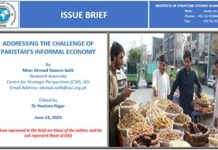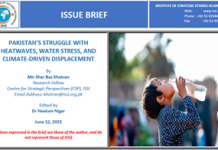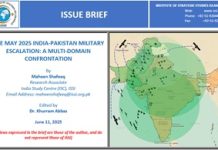Pakistan and the Kingdom of Saudi Arabia (KSA) have long been trusted partners, with fraternal ties based on the bonds of religion, with an all-encompassing relationship including economic, and military ties as well. This unique relationship has unsurpassed potential which, if fully tapped, can accrue benefits for both countries. KSA is also home to millions of Pakistani workers, who are a major source of foreign remittances. Firmly set on the path to further strengthening relations, both countries seek to forge an ever strong and all-inclusive partnership. Frequent high level official exchanges also take place, a testament to the deep-rooted relations.
Pakistan, with a burgeoning young population, offers Saudi Arabia several opportunities, like skilled workforce trained for specific sectors such as IT experts, doctors, engineers and academics. Pakistan itself is in need of Saudi investment from its private and public sectors in order to accelerate growth and development. Historically, Pakistan has been a significant buyer of Saudi crude oil, supplying at least 30% of Pakistan’s annual oil consumption. Saudi Arabia represents the largest source of remittances, with overseas Pakistanis in the Kingdom sending back $27 billion in 2023, nearly matching the country’s $27.7 billion in exports for the 2022-23 fiscal year.[1] The bilateral trade relationship has made significant strides, putting Saudi Arabia as Pakistan’s primary trading partner in the Middle Eastern region. Pakistan imports oil, petrochemicals, and machinery from Saudi Arabia, while its principal exports to the Kingdom include textiles, food products, and construction materials. Reportedly, KSA also plans to invest nearly 1 billion dollars in Pakistan’s Reko Diq mining project. Pakistan-Saudi Arabia’s current bilateral trade volume stands at 5.7 billion dollars. [2]















